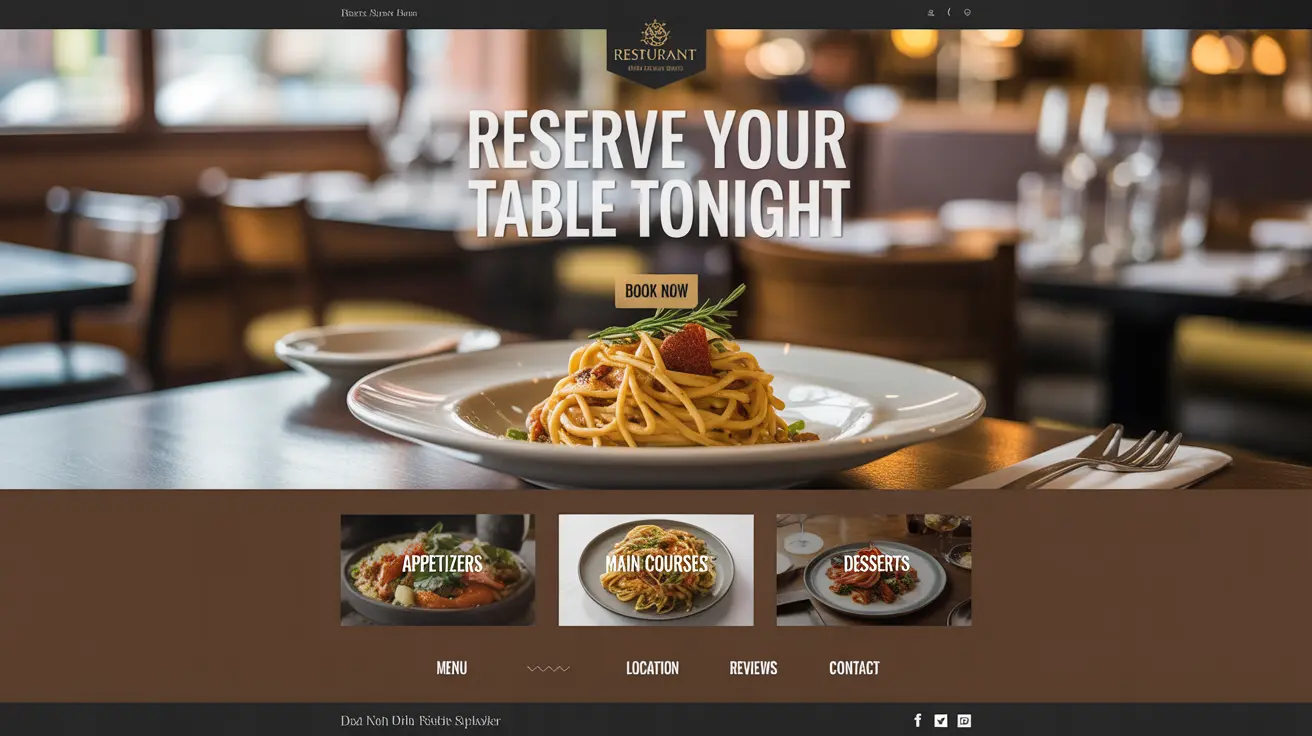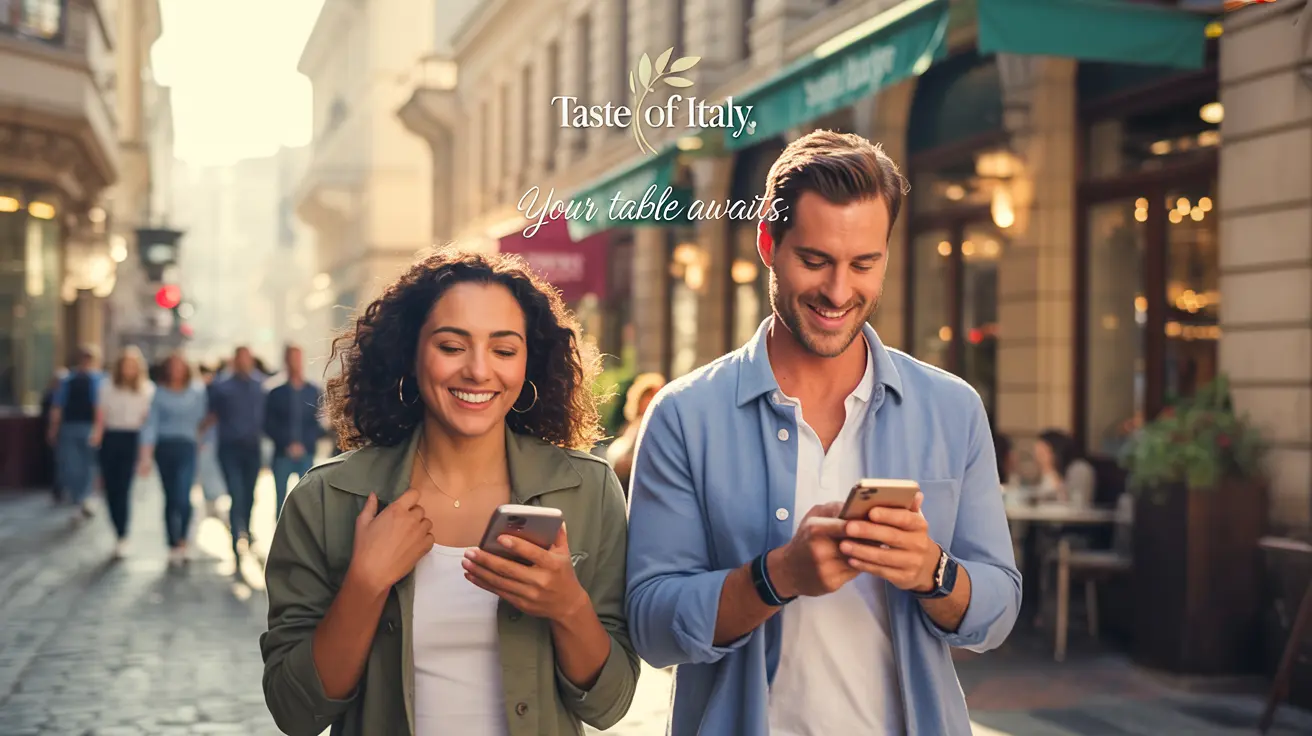Home / Blog / How Restaurant Websites Can Boost Online Reservations with Smart Features?
Discover how modern restaurant websites can leverage smart features like AI chatbots, real-time table management, and mobile optimization to drive more online reservations and enhance customer experience.
20 Sep, 2025

In today’s digital-first world, dining out begins long before guests arrive at a restaurant it starts online. Whether customers are planning a romantic dinner, a quick lunch, or a family celebration, their first interaction often happens on a restaurant’s website. A slow, outdated, or poorly designed site can result in missed reservations, while a modern, feature-rich website can turn casual visitors into loyal customers.
Restaurant websites are no longer just digital menus. They are strategic tools that drive online reservations, reduce no-shows, and create seamless customer experiences. By integrating smart features like AI-powered chatbots, real-time reservation systems, and mobile-first design, restaurants can gain a competitive edge and significantly increase bookings.
This blog explores how restaurant websites can boost online reservations using the latest digital strategies and technologies.
Changing Customer Expectations
Today’s customers expect convenience and instant gratification. Just as they order groceries online or book movie tickets with a few taps, they expect the same from their favorite restaurants. According to OpenTable, over 60% of diners prefer to book tables online rather than calling.
Benefits for Restaurants
1. Real-Time Reservation Systems
A static “call us to book” button is no longer enough. Restaurants should integrate real-time reservation systems like OpenTable, Resy, or custom-built booking engines. These allow customers to:
Web Development Services by 10turtle
2. AI-Powered Chatbots
AI chatbots can act as digital hosts, guiding visitors through reservations. For example:
This reduces friction, especially for customers visiting outside working hours.
3. Mobile-First Optimization
Over 70% of restaurant website traffic comes from mobile devices. A mobile-friendly, fast-loading site with click-to-book buttons ensures higher conversions. Key features include:
4. Personalized Customer Experiences
Smart reservation systems can integrate with customer relationship management (CRM) tools. This allows restaurants to:
5. Social Media & Google Integration
Customers increasingly discover restaurants via Instagram, TikTok, or Google Search. Integrating “Reserve Now” buttons directly from Google Maps or Instagram profiles helps capture reservations at the discovery stage.
Google Business Profile Reservations
6. Data-Driven Insights for Better Management
Reservation systems provide analytics such as:
This data helps restaurants adjust staffing, optimize promotions, and improve customer service.

Example 1: A Fine-Dining Restaurant in Dubai
By integrating a real-time booking system with SMS reminders, a fine-dining restaurant reduced no-shows by 30% and increased repeat bookings by 20% in three months.
Example 2: A Casual Eatery in New York
A local burger joint implemented an AI chatbot for reservations and customer queries. The chatbot handled 40% of all bookings, freeing up staff to focus on in-restaurant service.
Example 3: Global Chains
Brands like Starbucks and Domino’s show how personalization and mobile-first booking apps can drive massive engagement. Independent restaurants can replicate these strategies on a smaller scale.
While the benefits are clear, restaurants face challenges such as:
However, with the right digital partner, these challenges can be solved efficiently.
Looking ahead, restaurants will embrace technologies like:
These innovations will further blur the lines between dining and digital experiences.
A restaurant’s website is no longer just a digital brochure it’s a powerful booking engine. By adding smart features like AI chatbots, real-time reservation systems, mobile optimization, and data-driven personalization, restaurants can significantly increase online reservations and improve customer satisfaction.
The result? More tables filled, reduced no-shows, and loyal customers who keep coming back.
Q1: Why should restaurants invest in online
reservation systems?
Because they reduce no-shows, improve customer convenience, and allow
restaurants to manage tables more efficiently.
Q2: How do AI chatbots improve restaurant
websites?
They handle bookings, answer FAQs, and operate 24/7, providing a seamless
customer experience.
Q3: Do small restaurants benefit from smart
website features?
Yes, even small businesses can see increased reservations, improved customer
insights, and more repeat visitors.
Q4: What’s the cost of adding smart features to
a restaurant website?
It varies depending on whether you use third-party platforms like OpenTable or
a custom solution.
Q5: What is the next big trend in restaurant
websites?
Voice-enabled bookings and AI-powered personalization are set to reshape the
dining experience.